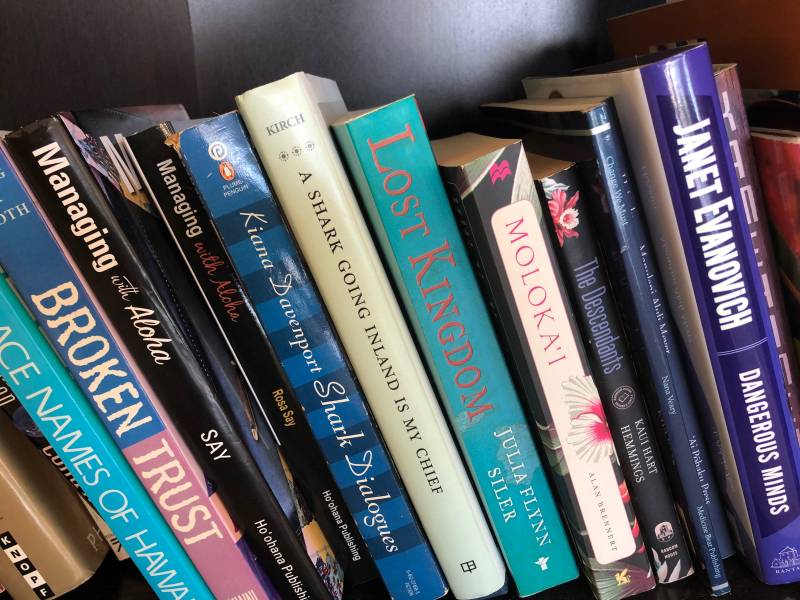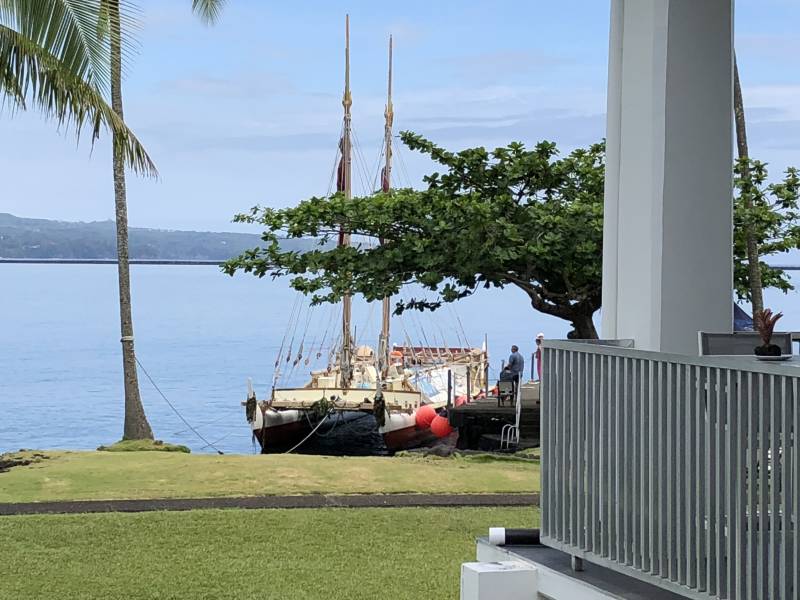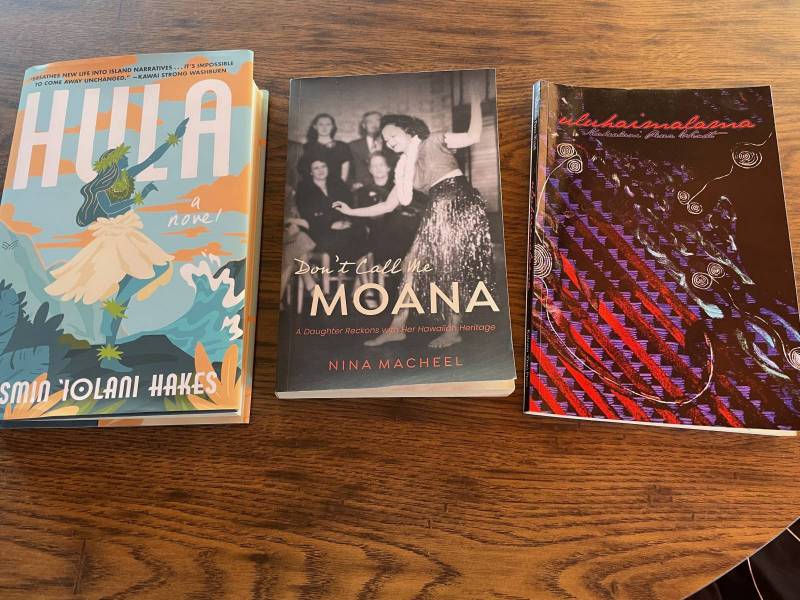Summer Reading for the New Hawaiʻi Resident or Future Resident
Three years ago, at the height of the pandemic-related restrictions on travel to Hawaiʻi, I wrote one blog post with Hawaiʻi film and music recommendations and another with Hawaiʻi book recommendations for those of my readers who might have been missing their second home, or annual travel to Hawaiʻi. A recent spate of new books, and an article by Naka Nathaniel, my new favorite columnist at Hawaiʻi online news outlet CivilBeat, on his top 5 books to read about Hawaiʻi, is prompting me to think about what I would recommend to malihini (newcomers) and even to friends from here wondering what to read this summer.

Part of my own bookshelf, a mixture of fiction, non-fiction and reference books on Hawaiʻi.
Are These the Five Most Essential Books to Read to Understand Contemporary Hawaiʻi?
Each personʻs choice of essential reading is necessarily going to be highly personal. What speaks to me may or may not resonate with you. Both Nathaniel and I live in the northern part of Hawaiʻi Island, which surely colors our perceptions. Additionally, both of us feel compelled to educate newcomers to Hawaiʻi — him as someone returning home, me as someone still learning what it means to call Hawaiʻi home when I believe to do so with respect requires being in reciprocal relationship with ʻāina and community.
Thatʻs a mouthful. Maybe these titles will help those create a context for those words.
Journalist Naka Nathanielʻs choices, with my commentary, are:
- “Sharks in the Time of Saviors” by Kawai Strong Washburn. Although two other books with “Shark” in the title made my 2020 list, this book was published in 2020 and downloaded to my Kindle during the pandemic. A contemporary story in which the family story wanders between their origins on Hawaiʻi Island and current life on the Continent; between “myth” and “reality,” in that way literary critics call “magical realism.” Let me just say both of these dynamics – multicultural heritage as experienced on and off the islands, and a way of understanding that often seems like belief in myth or magic to outsiders, are accurately portrayed. Using a shorthand that does justice to neither, I could call this the male voice equivalent to Kiana Davenportʻs voice in Shark Dialogues.
- The short story collection “This Is Paradise” by Kristiana Kahakauwila. A collection published in 2013 that was not even on my radar screen. Suffice it to say it is up next on my Kindle for summer reading.
- “The Descendants” by Kaui Hart Hemmings. In movie and book form, this made my 2020 list as well.
- “Detours: A Decolonial Guide to Hawaii.” Ironically, I recommended this book in just the past couple of weeks to someone who is new to our community with a strong interest in historic preservation. I suggested it might open her eyes and mind to fundamental questions of which histories we privilege and which we erase. There are subtle dynamics here that Iʻm barely beginning to understand after two decades of conversation and study. This book helped.
- Hawaiki Rising. This is a timely suggestion offered as Hokuleʻa embarks on the ambitious Moananuiākea multi-year voyage around the Pacific. The Poynesian Voyaging Society webpage explains that Moananuiākea is: “A 43,000 nautical miles, 47-month circumnavigation of the Pacific by traditional Polynesian voyaging canoes Hōkūle‘a and Hikianalia and 400 crew to 36 countries and archipelagoes, nearly 100 indigenous territories, and 345 ports.” The voyaging tradition is but one important part of the Hawaiian cultural renaissance and a compelling place to start.

Hokuleʻa in Hilo during the Merrie Monarch Festival in April 2018 — navigating across oceans using only the stars, wind and waves.
My Recent Reading — Fiction, Non-Fiction, Memoir — Even Poetry About Hawaiʻi

Three books that recently made their way onto the table next to my favorite spot to read and ponder on the living room couch
- uluhaimalama by Mahealani Perez-Wendt. I read a lot of poetry. Sometimes that means reading new (to me) poets and poems, and sometimes returning over and over to my favorites. The annual Hawaii Book and Music Festival introduced me to some new (to me) poets last year, and this 2007 book has intrigued and challenged me since then. Many of the poems are about places I think I know (e.g. Anaehoʻomalu) and lifestyles think I know (e.g. paniolo). As all good poetry does, the poems often reach a part of my brain beyond linear, rational knowing so I end up understanding something differently.
- Donʻt Call Me Moana by Nina Macheel. This is memoir written by a woman of mixed Hawaiian heritage who was raised in the Midwest, and then finds herself working and spending time in Hawaiʻi and researching and coming to terms with her family legacy and her place in it. The author is someone I know personally and have always found to be thoughtful and insightful. Sometimes newcomers express frustration to me that they are not immediately accepted and welcomed into their new communities – or find aspects of them frustrating to understand. As you will read in this memoir, even if you are genetically from here, and your family is still here, that journey of finding your place is not easy.
- Hula by Jasmin ʻIolani Hakes. Apparently this novel may be on a bunch of summer reading lists, having been chosen by celebrity book clubs. It comes with endorsements from both Kawai Strong Washburn and Sara Ackerman, two writers whose novels about Hawaiʻi Island I enjoyed and learned from. My own reaction was mixed. And while I notice glowing reviews in newspapers on the Continent and national websites, Iʻm curious why Hilo town is not crowing about one of their own publishing on a major imprint. There is accurate history here and a richly imagined multigenerational family. You could do much worse than this novel. And when I figure out what makes me uncomfortable, I will let you know.
Feel free to add your own favorites or reviews in the comments!




Leave your opinion here. Please be nice. Your Email address will be kept private, this form is secure and we never spam you.